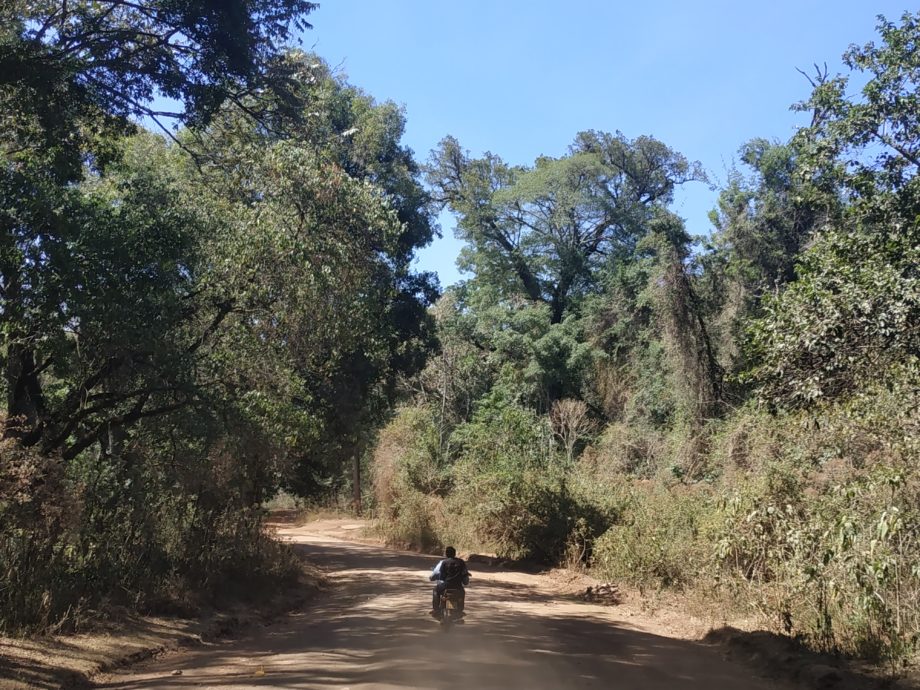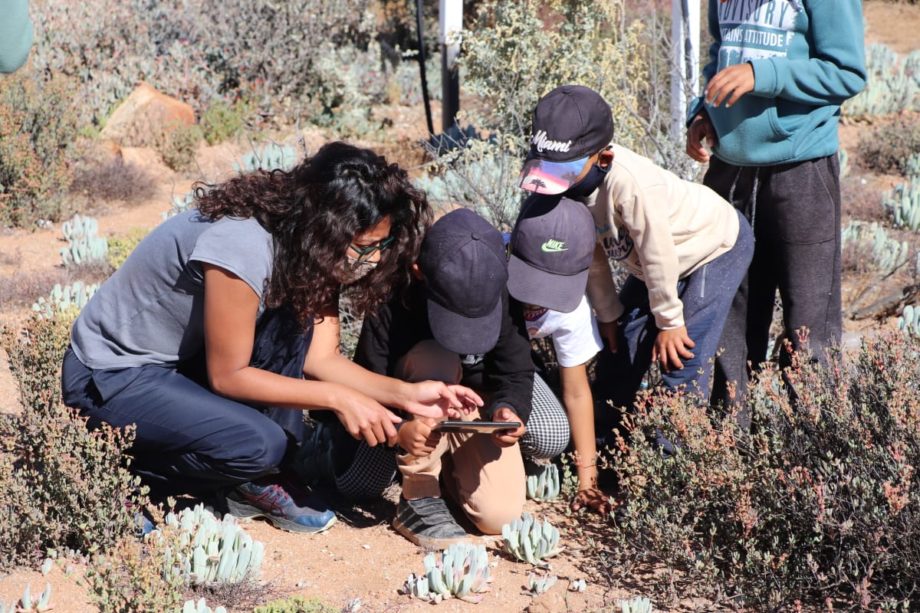Part 2 | Session 7 | 06 Jun 2024 | Decolonizing Ecologies
Lizenz: CC BY-NC-ND 4.0
In this session, the two young researchers Léa Lacan and Denisha Anand will present their work on knowledge, practices and ethics in environmental anthropology and the potentials of anthropology as a discipline to counter universalist narratives around biodiversity, conservation, and the Anthropocene. The conversation will be moderated by Ursula Rao.
Decolonizing the forest: thinking from the Katimok forest in Baringo, Kenya
The Katimok Forest in the highlands of Baringo County, Kenya, is a product of colonial forestry. This model of forestry, which traveled throughout the British Empire and developed in Kenya under British rule, sought to transform forests into natural resources to be set aside, conserved, improved, and used for the economic development of the country. This vision, both environmentalist and utilitarian, was based on colonial notions of a degraded forest in Kenya, destroyed by its inhabitants, but it was unsupported by evidence and ignored local ways of living in and with the forest. In Katimok, this led to the designation of a forest as a territory and natural resource under state control, the relocation of its inhabitants outside its boundaries, and the creation of exotic tree plantations for forest exploitation. Local ecologies and local ways of living with the forest in Katimok were disrupted. Today, former forest dwellers or their families still living around Katimok continue to claim their ancestral ownership of the forest from the Kenyan government and demand compensation for past evictions.

© Léa Lacan, Katimok Forest, Kenya.
Léa Lacan’s presentation proposes to „decolonize“ Katimok and its ecologies, first by deconstructing the „forest“ and its conservation as a colonial enterprise. Second, it proposes to center the story on the „colonized“, the local people now living on the edge of Katimok forest, their perspectives and agencies. To do so, it discusses the current claims on Katimok and how the residents are re-appropriating its colonial history to make their voices heard. It also explores the ways in which residents understand and live with the forest as a familiar place and a network of living beings that sustain their lives and flourishing, far beyond a mere forest resource created by the colonial administration and managed by the Kenya Forest Service. Finally, this presentation will question the role of the anthropologist in decolonizing ecologies.
Veldkinders: Teachers of Intersectionality
Denisha Anand’s first encounter with the word veldkind (child of the land, child of vegetated land) was in Paulshoek, one of 10 villages within the Leliefontein communal area (LCA), in the Northern Cape of South Africa. The LCA’s plant richness has supported a variety of plant practices dating back to over 2000 years predating colonialism and are mostly agricultural and ethnobotanical in nature. These practices are still used by the descendants of the Nama speaking Khoikhoi who live in the communal area of Leliefontein today (Cupido, Ellis, & Samuels, 2021). The veldkinders of Paulshoek are the descendants of the Khoikhoi people, they are children who possess knowledges of the succulent karoo biome and its hidden ecologies. Ecologies unknown to or unspoken of by most botanists and agro-ecologists.

© Denisha Anand, Princess Vlei wetlands, South Africa.
Leaning into her immersive ethnographic exploration with veldkinders, Denisha Anand posits that an identity is created through our socio-environmental relationship with plants and the natural environment. This identity is argued to be layered by intergenerational knowledge transfer, race, gender, class and locality.
Veldkinders are currently competing with environmental practices aimed at undermining their knowledge making ability and presence, due to “scientific methods” inability to quantify the value of playing and escapism in the semi-arid region of Namaqualand. Despite being able to recall location data of species and identify seasonality based on the presence or absence of plant forms they remain overlooked as knowledge holders. Repeat photography, quadrats and species counts may accumulate the same forms of data as the methodologies applied by veldkinders and yet this remains unexplored and validated by agro-ecologists and conservationists.
In response to this, Denisha Anand presents intersectional environmentalism as described by climate activist Leah Thomas during the height of the Black Lives Matter movement, as a framework that supports the multivocality of the veldkind as well as alternative forms of environmental practice. This presentation therefore aims to share the story of the veldkind and the methods used to understand and document plant human knowledges while briefly unpacking environmental intersectionality as a theoretical lens that holds the layered identities of unorthodox environmentalists.
Readings
Léa Lacan is a postdoctoral researcher in environmental anthropology at the University of Cologne and a member of the Global South Studies Center (GSSC). She did her PhD on human-forest relations and politics of forest conservation in Kenya. The book based on her dissertation, Forest Politics in Kenya’s Tugen Hills, will be published in July 2024 with James Currey. She is now working within the project ‘Rewilding the Anthropocene’, funded by the European Research Council, in the Kavango-Zambezi Transfrontier Conservation Area in Southern/Central Africa. Her current research focuses on the politics of local wildlife conservation projects in South-Western Zambia at the crossroads of political ecology and more-than-human anthropology.
Denisha Anand is a final year master’s student in the anthropology department at the University of the Western Cape, South Africa. Her research focuses on mapping and visualizing the plant human practices and intimacies in the Northern Cape of South Africa. As a qualified conservation biologist, specializing in the restoration of indigenous vegetation in the city of Cape Town, she merges her experience as a researcher in the social sciences with the challenges and needs on the ground within the environmental sector. Her most notable work is based at Princess Vlei wetlands.

































